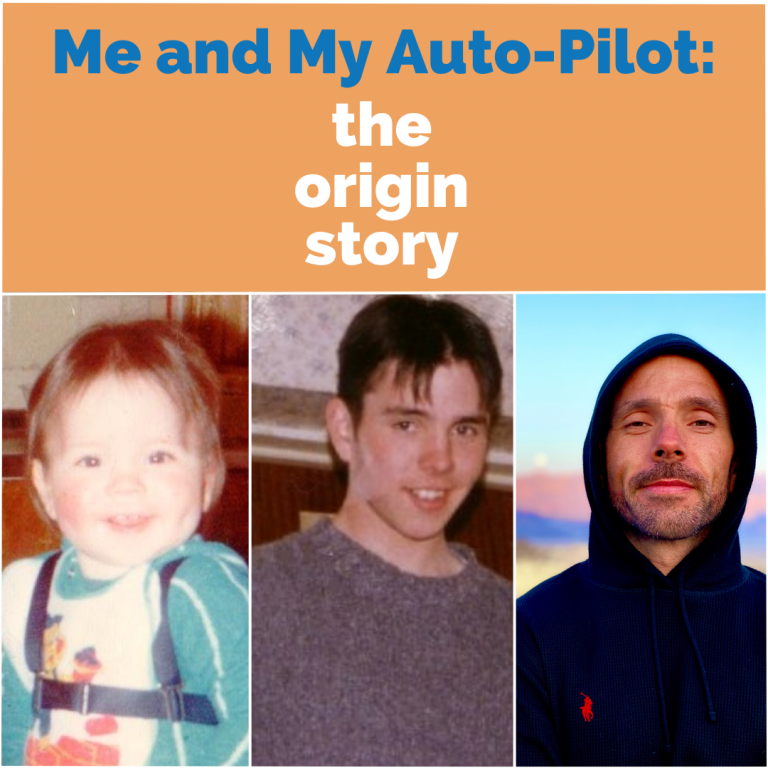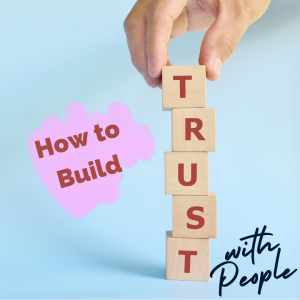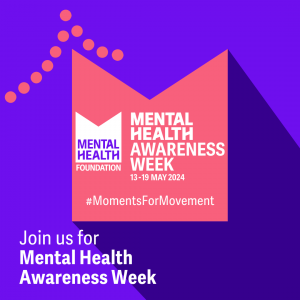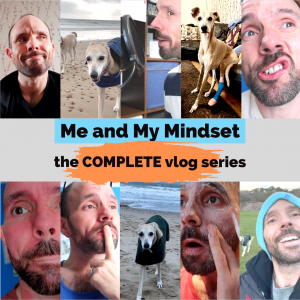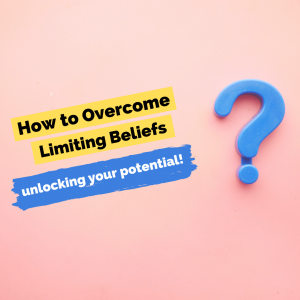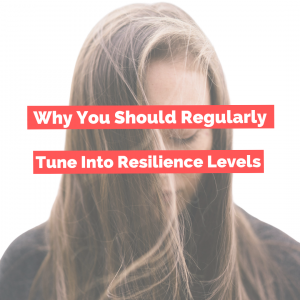Chances are, if you’re reading this, you’ve got a few years behind you.
In fact, you’re probably (definitely) so old, that you’ve already experienced so much that has filtered your perspective.
From your parents or guardians, your teachers, your friends. They may even have helped you to pack your own suitcase of emotional baggage, that you drag around everywhere with you.
I’ve never really talked at length about my emotional baggage and why I’m so passionate about helping people to switch off their internal auto-pilot to get to a stronger and more resilient mindset, yet like all of us, there is an origin story to be told.
The boring stuff
If you’ve been following me for a while, you’ll know that I run a learning and development consultancy called CM Learning (Chris Mooney / Changing Mindsets…geddit?).
I’ve been helping people to develop for over 20 years; ever since Kylie, my childhood and adulthood hero, came back with Spinning Around in 2001 in fact.
I love the incredible change that is sparked for people – both personally and professionally – when I’m privileged enough to help them develop their mindset and switch to manual.
The less boring stuff
I do this because I fiercely believe and know to be true the difference that it can make.
We all have our own story and hardships in life, and this is a little bit of mine, when I realised how my auto-pilot was in danger of threatening my wellbeing.
I grew up in Northern Ireland in the 1980s and ‘90s with a family who loved me. I was a happy and well-behaved little boy, growing up with a protective older brother who I shared a bedroom with. Mum and dad separated when I was very little. Mum was also an alcoholic and after my parent’s separation, she quickly met the man who was to become my step-dad – also an alcoholic – and they began a very toxic and destructive relationship.
After years of what I now understand to be part-love, part-neglect, part-normality and part-mental abuse, I moved in with my amazing dad and also amazing step-mum when I was 11 years old; a decision my mum took very personally (side note: sober-mum was equally amazing yet struggled with her alcohol addiction for many years, and with a full reluctance to admit that there was any issue).
At around the same time, I began to realise that I was gay…11 was an interesting age for me.
My half-brother – though it’s a term we never use – was born 3 years later and, because of mum’s drinking, he was quickly taken into care and grew up through the system in care homes and foster homes until adulthood. Throughout everything, Scott and I developed a rock-solid bond that remains to this day. He has his own story of adversity and I am so very proud of who he has become.
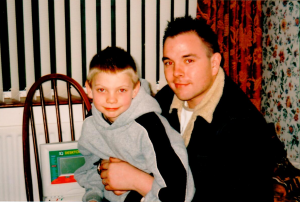
Growing up gay in Northern Ireland back then wasn’t particularly easy. I was a fairly effeminate child and so when I hit high school, I was bullied pretty badly because of course effeminate equals massively gay (which in this case it did, but still…).
During the many tough times, I would catastrophise. I used to be a fantastic catastrophiser; my childhood required me to consider the ifs, buts and maybes of so many volatile situations, it made me feel safe to think of every possible outcome and to have a response ready for each one, just in case.
When I came out to my family at 16, dad, my step-mum and that side of the family were fantastic. Dad worried that my path might be harder yet just wanted me to be happy. I purposely told mum while she was driving so that she couldn’t freak out and she brushed it away and said “Oh Christopher, don’t be so silly, you’ll meet a nice girl and settle down.” She was driving to my grandparents and when we got there and she shared the news, my grandad told me it was just a phase (so far, a 30+ year phase). Worse was when, soon after that, Scott’s dad – the man who had helped to bring me up – snatched Scott from my arms because he didn’t want him to catch AIDS from me.
In 1998, my first boyfriend tragically died. That’s another story for another day yet what I will say is that I found his body and we had his funeral on my 18th birthday. It was the impetus that would see me leave Northern Ireland to begin my adult life in England (this also accounts for the messed-up accent, just in case you’ve ever wondered).
I quickly met Sean – 24 years and still going strong – started to forge a career for myself and life was pretty normal. Nice things happened, like when my first niece Hannah came in to the world in 2000 and horrible things happened. Mum died suddenly when I was 23. This period in my life is a blur, like trying to cling on to a dream. I remember trying to stay strong for 9 year old Scott and being grateful of having England to escape back to, almost like it provided a line in the sand to go forward from.
Why am I telling you this?
Well for me, from an early age, I had a choice point. I could decide to work on how I was feeling and the emotions that I was experiencing, or I could choose to continue ignoring and supressing them. In the space of a few years, I began to learn so much about my own mindset and resilience that I would have otherwise missed if I’d stayed on auto-pilot.
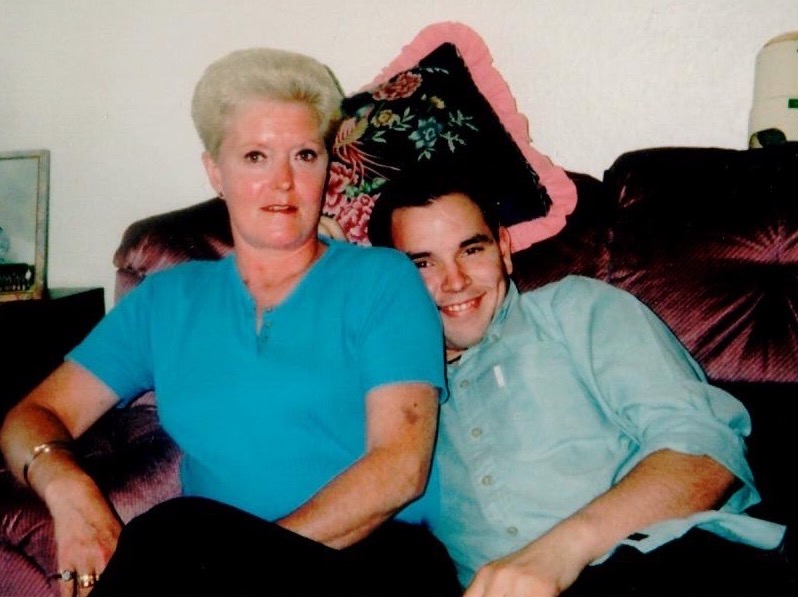


I learned how to manage my inner critic when I would blame myself for mum’s drinking – “Why can’t I help her?” or “Why doesn’t she love me enough to stop?”.
I came to understand the great impact of the hugely negative words that I used to describe myself, my behaviours and my actions.
I realised the power of self-reflection in how I respond to the highs and lows of huge changes and that I could in fact make a tangible choice of deciding what I could and couldn’t impact and where I choose to focus. This in turn, helped me to keep perspective and gave me confidence that things might not always be easy, but I would get through.
Essentially, I learned about how important it was for me to stop living life on auto-pilot and switch to manual.
It helped that my step-mum was studying throughout much of my early teenage life to become a social worker, so my poor step-sister and I were her live-in guinea pigs for counselling and coaching practise (“Tell me how you’re feeling?” Ughhh).
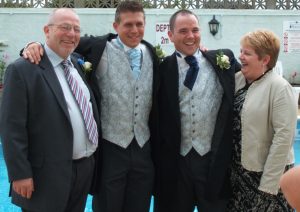


Our human disposition is to carry on for as long as we can, on auto-pilot, before we are unable to go on any longer. It’s our auto-pilot that has gotten us this far in life and helped us to cope, through so much.
I was (and still can be) a ‘rescuer’. I felt that I had to be there for others, that I couldn’t share my troubles with anyone else because theirs were more important. I worried that if I really began to analyse how I was feeling, I would succumb to those feelings and let them take control.
Over time I began to recognise the value of tuning into my physiology. Listening to those little internal voices, feeling the flutter of those little butterflies. I started to notice that doing this consciously took away the limiting power of the feelings and gave it back to me.
Soon I was able to give myself permission to feel however I felt. I realised that it’s okay to feel overwhelmed with whatever is going on. I knew that whatever was happening wouldn’t be forever; the thoughts, feelings and emotions would pass. I was more patient with myself rather than constantly being my own worst critic.
Ultimately, I learned to consciously switch to manual and have been able to challenge myself in so many ways since. Developing this habit of sense-checking my reactions and assumptions, I learned to understand and empathise with other people’s perspectives so much easier. I was able to increase my resilience reserves because now I knew that whatever happened, as tough as it might be, I’ll handle it.
We don’t talk about this kind of stuff very often. It’s arguably much easier to stay in auto-pilot and ignore, suppress, do what we’ve always done.
If we can get better at switching to manual rather than constantly staying on auto-pilot, we begin to challenge ourselves in so many ways. By developing this conscious habit of sense-checking our reactions and assumptions, we learn to understand ourselves and others at a deeper level.
So, that’s mine and my auto-pilot’s origin story; what’s yours?

